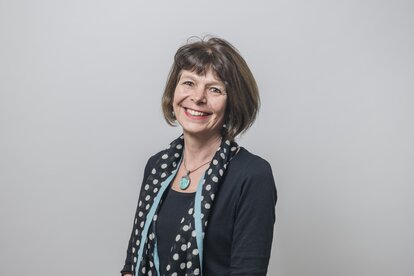written with Bhavna Adhikari
"Coming here is like having someone pick the lice out of your hair: you get so much relief!"
My colleague Bhavna and I were sitting in a small office in the town of Dhading (some two hours’ drive from Kathmandu), listening to individuals who, as family members of migrants, have received psycho-social counselling. The office in question belongs to a local NGO named CIRDS; it offers the services of a professional counsellor through our Safer Migration Project (SaMi), which is supported by the Swiss Agency for Cooperation and Development (SDC) in a bilateral collaboration with the Government of Nepal.
Supporting family members left behind
The woman who made the remark about lice – we will call her Gita – had lost a considerable amount of money trying to get her son back from Malaysia after his contract terminated and he failed to return home. She had also lost her elder son in an accident, and was clearly still grief-stricken. Others with whom we spoke had been confronted with the death of a husband in Malaysia; cheated of large sums by unscrupulous illegal agents; or simply struggled to cope with the long-term absence of a loved relative. All said that the counselling sessions had helped them greatly. CIRDS has also helped them to take legal action where appropriate, or has assisted in locating missing people.
Dhading district – in the new administrative structure of Nepal will become a number of Palikas – is an area of high labour migration to Malaysia and the Gulf countries. Figures indicate that some 1,500 people leave Nepal daily on labour migration (of course there are also others returning, but overall the trend continues to rise). These are official figures and do not include migration to India. Labour migration is, for many, the only way that they can see to pay off debt and/or earn enough to lead a decent life back home. Of course it can also have negative consequences. Fortunately, cases such as those described by Gita and others are the exception rather than the norm, but since 2014, CIRDS has given psychosocial counselling to 354 individuals. It is just one of 9 SaMi partners in 9 districts providing this service.
Being well informed before leaving
Working with the relatives of migrants is a relatively small part of SaMi activities; another is making sure that those who choose to migrate are well informed, and take precautions against being cheated or otherwise getting into difficulties. One way in which this is done is by working in collaboration with the government district authority issuing passports. As part of the passport issuing procedure, applicants have to visit the SaMi Information and Counselling Centre to have a form stamped. At this office, they receive advice on what to expect in the destination country, what skills are demanded, and how to stay safe. Whilst this advice is generally appreciated, it was found that would-be migrants often listen more to people they know, or who at least come from a similar background. Thus the project also offers a further source of information: trained returnee migrant volunteers (RV for short).
Returnee volunteers (by Bhavna Adhikari)
As communications officer for SaMi, I have had the occasion to meet a number of RVs. During this particular visit, we met four out of the 15 RVs in Dhading. All RVs are initially provided a 3-day training to acquaint them with SaMi’s services as well as current trends in labour migration. The RVs, who typically work 15 days a month and are paid about US$ 65 per month, hold community orientation meetings (in liaison with SaMi social mobilizers), as well as making door-to-door visits. They also connect migrant workers or their families to the Information and Counselling Centres, from where they may be further referred to national partners in Kathmandu, as necessary. The RVs whom we met clearly enjoy their work. Khem Narayan Shrestha commented, ‘’Having returned after working in three countries myself, I am able to disseminate information based on first-hand experience. People trust me. As a result, I have been able to save several people from being cheated by unscrupulous agents.’’
Another RV, Navaraj Simkhada, gave a particular example, "A lady whose son was in the process of migrating to Qatar for work approached me two weeks ago. The agent was neither able to acquire a visa for her son, nor would he return their money or the son’s passport. I took the case to the ICC, which reported it to the police and the family finally got their money and passport back. In my work, the result is instantaneous and extremely fulfilling."

Some of the people we met during our visit also told positive stories of migration. Anita Bhujel, for example (pictured here), is a mother of three adult children, living a two-hour bus ride from Dhading town. She had made this journey for the first time in her life in order to tell us how happy she is with her daughter’s opportunity to earn abroad. Supported through SaMi, the young woman undertook a training in garment manufacture, and is now regularly sending money home from Jordan. Anita was keen to explain how wisely they have used this money. “We have bought land and a pair of oxen; we could never had dreamed of doing this otherwise.” The productive use of remittances is of course a crucial part of migration – but that is another story.
The headline photo shows a psycho-social counselling session in a rural part of Dhading district.



